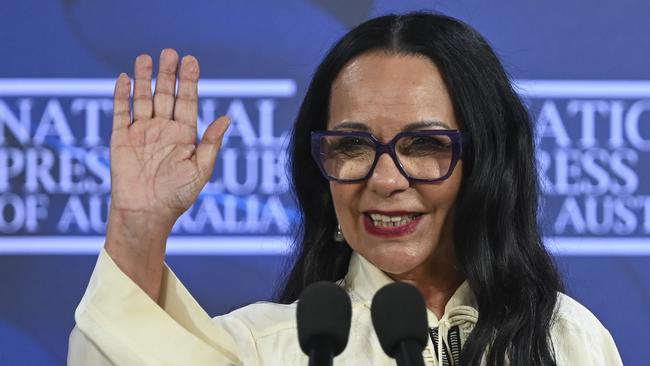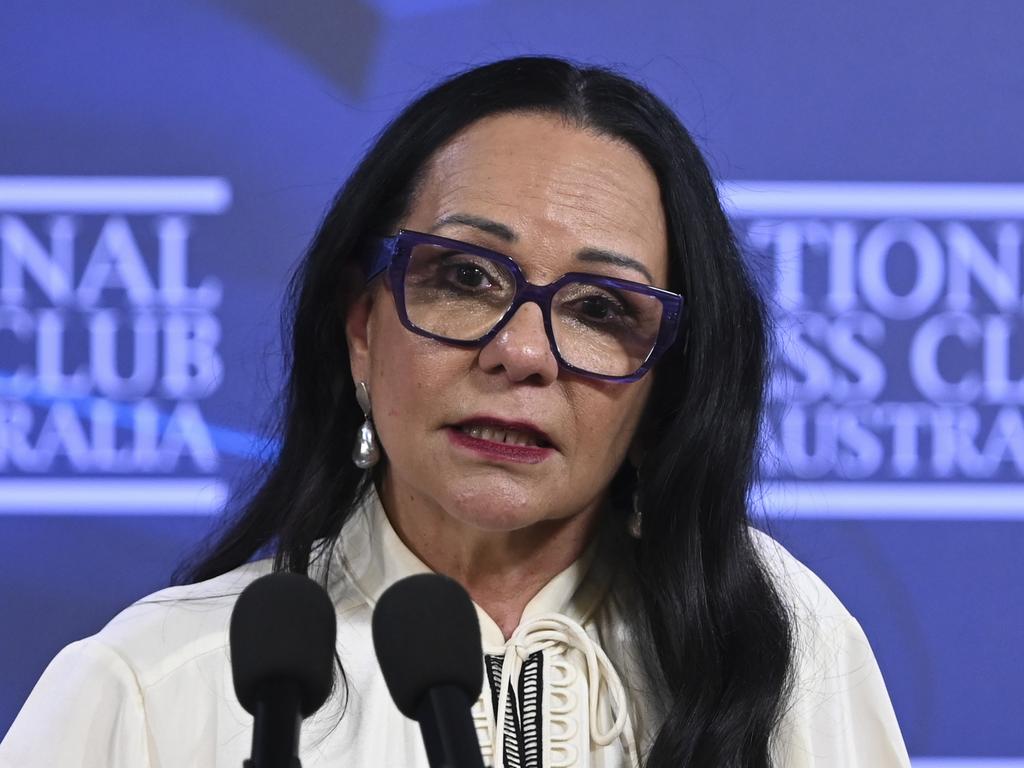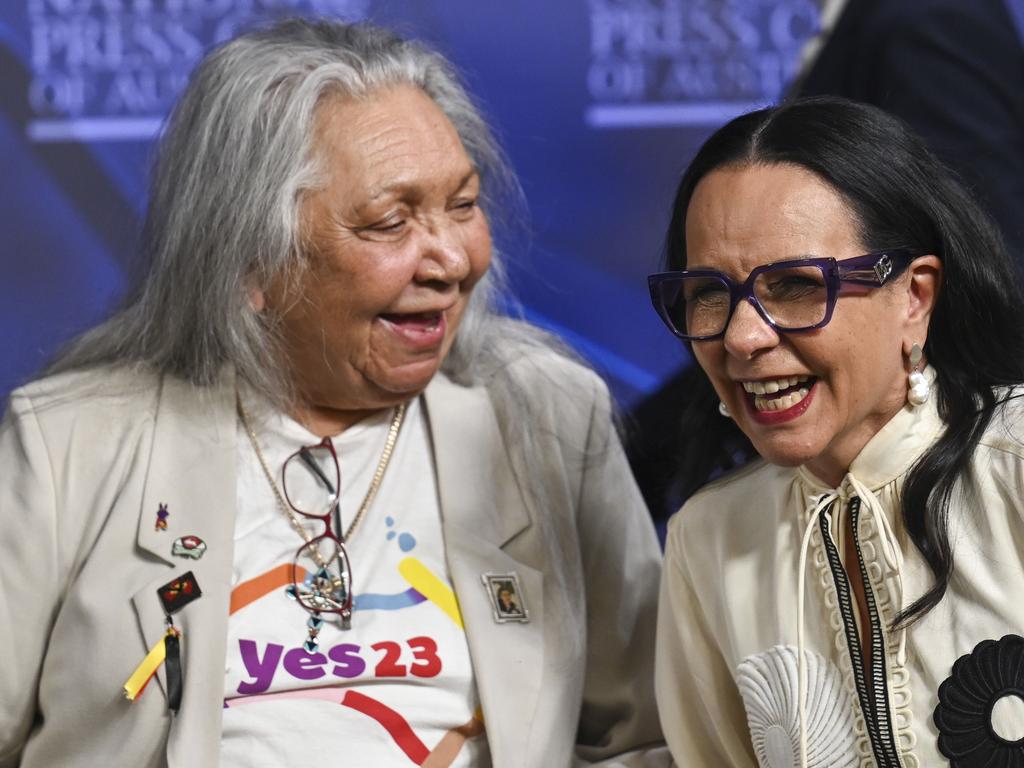Answers to Indigenous voice to parliament will not be found in the swamp

By using her landmark address to the National Press Club on Wednesday to do so, Ms Burney has ignored warnings that resorting to personal attacks was a mistake.
A slide in support for the Yes vote in the polls has coincided with a loss of civility in discussions about the issue more broadly. Ms Burney had an opportunity to reset the clock on the national stage but is likely to have antagonised as many people as she convinced.
Her negative comments, which she drew particular attention to, no doubt reflect exasperation at the inability of the Yes message to cut through.
National and regional polls have all shown a dramatic slump in support, leaving it far short of the majority of votes in the majority of states needed to pass. But the road ahead must be guided by facts and good examples rather than calls to censor opposing views by labelling them misinformation.
It is difficult to argue with Ms Burney’s case that better communication can deliver better outcomes. She says policymakers do not listen because they do not have to.
In her view, the voice to parliament will be nimble, efficient and focused on making a practical difference. It will be chosen by local communities for local communities and will be enshrined in the Constitution to ensure permanence – and because that is what Indigenous leaders have requested in the Uluru Statement from the Heart.
Ms Burney says a voice cannot be truly independent or give frank advice if government can abolish it at the stroke of a pen.
Her examples of where a voice could make a practical difference included improving school attendance at a local level, improving the design and operation of the work-for-the-dole scheme with better training of the skills demanded by local communities, and support for birthing on country that embraces tradition and language to reduce the number of premature childbirths.
Ms Burney says a voice can help us better understand what is going on, on the ground. Just as doctors get better outcomes when they listen to patients, she says, policymakers get better outcomes when they listen to First Nations communities.
As a paper, we have outlined repeatedly our support for constitutional recognition of Indigenous Australians. Decades spent reporting from remote communities have given us a strong sense of the disconnect that exists between what is happening on the ground and out of sight and the fashionable preferences of policymakers and urban sophisticates.
Ms Burney is correct to identify school attendance, housing and maternal care as priority areas that can achieve transformative results, but she has found it more difficult to explain how exactly these things can be achieved when existing agencies and programs charged with that exact same charter have been unable to find success.
A critical point of confusion remains the ability of government to direct the voice where it should focus its attention, something Ms Burney says may be legislated. She says that from day one the voice will have a full in-tray.
“The voice will be tasked with taking the long view. Unlike government, it won’t be distracted by the three-year election cycles. It will plan for the next generation, not the next term. It will be focused on making a better future for the next generation,” she said.
Opponents argue that this ignores the fact that the voice will have its own cycle of internal politics. And that enshrining the voice in the Constitution will put it beyond the reach of government.
Politically, the Albanese government no doubt relishes the fight. It has been able to characterise the Opposition Leader as lacking in compassion and out of touch.
Meanwhile, Mr Dutton finds himself at war with a business community that is deserting the Liberal Party and pouring millions of dollars into a campaign to support the voice. But as editor-at-large Paul Kelly wrote on Wednesday, it is obvious that most corporates don’t want to engage in debate about the voice.
They want kudos from their support but dodge accountability for their partisanship. Nor do the financial forces being marshalled reflect the fact more than 50 per cent of the Australian people say they currently reject the voice and resent being told how to vote.
The conundrum remains that most people overwhelmingly support recognising Indigenous Australians in the Constitution. And they demand that government deliver on practical things such as health, education and life expectancy.
The government’s challenge remains to convince voters that the voice as it is proposed is the right way to get there. The danger is that if success in these vital areas of closing the gap remains elusive, the temptation will always be to resort to symbolic gestures that provide good feelings but little improvement in the areas that matter.




Linda Burney’s welcome attempt to put some detail into what will be the focus of the Indigenous voice to parliament was undermined by her resort to denigration of its opponents. By labelling Peter Dutton a “bully boy” and claiming that supporters of the No campaign were importing “Trump-style politics” to Australia, the Indigenous Australians Minister left the high road for the swamp.